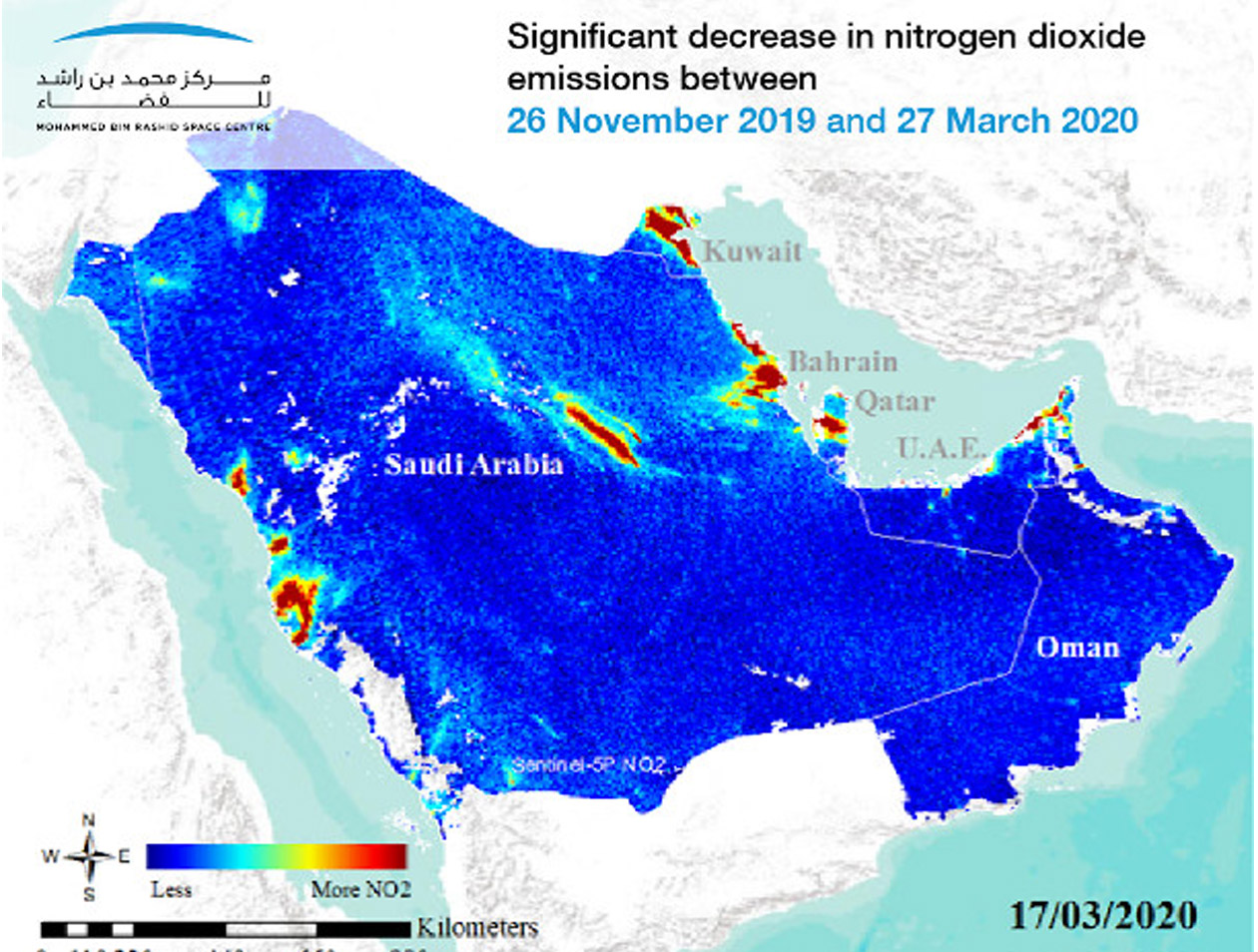The coronavirus pandemic continues to have a profound effect on the world. The virus, which causes covid-19, is swiftly approaching 1 million confirmed cases worldwide. At the same time, over 1bn people are currently said to be in a state of lockdown. But, as The Mohammed Bin Rashid Space Centre (MBRSC) has shown today, one of the positive effects of the virus and our measures to slow its spread, is that air pollution levels are dropping. In this gif and series of images, taken over Saudi Arabia, the UAE and the other GCC countries between November 2019 and March 27 2020, you can see a drop in the level of nitrogen dioxide in the air.
Beginning in late February, the drop appears to coincide with the precautionary measures implemented in the region to prevent the spread of the coronavirus that causes Covid-19. Restaurants, cinemas, malls and beaches have all been closed. The grounding of nearly all flights as well as greatly reduced road traffic due to curfews and a large portion of the population now working from home, has seen a reduction in the gas produced when you burn fossil fuels.
Nitrogen dioxide is mainly produced from engines, power generation and other industrial processes, according to the World Health Organization (WHO). The resulting reduction in emissions has in turn improved the quality of air in the GCC. Published by The Remote Sensing Department at MBRSC, the results use data acquired by the European Space Agency’s Sentinel-5P mission.
